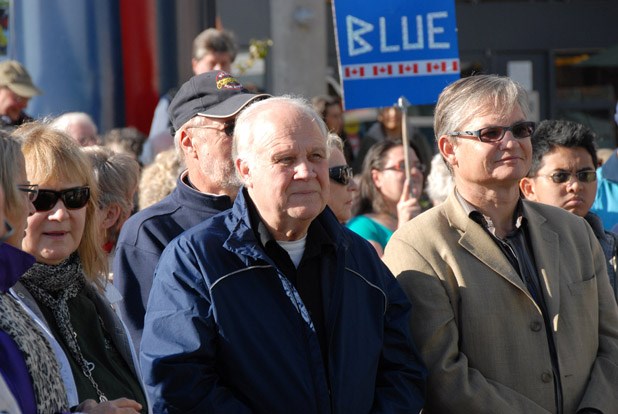New Westminster isn’t warming up to a coal facility planned for Fraser Surrey Docks.
Last week, Port Metro Vancouver announced it had approved a permit for a coal transfer project at Fraser Surrey Docks. The coal would be mined in the United States, transported by rail to Fraser Surrey Docks, loaded onto barges, sent to Texada Island and shipped to China.
“There don’t seem to be any American ports that are willing to take this coal,” said Coun. Chuck Puchmayr. “There have been hazards identified along the rail route, particulates and micro-particles that are causing issues with people’s health.”
Puchmayr is concerned about the risks associated with building a coal terminal handling an “extremely volatile” type of coal 37 kilometres inland in middle of Metro Vancouver.
“I fear a huge environmental catastrophe from that facility being really in arm’s reach of us being across the Fraser River,” he said Monday night. “We are the first impacted. There is nothing between us and that dock. There is open water.”
Although Port Metro Vancouver has made its decision, Puchmayr doesn’t think the city should give up the fight against the project.
“I certainly want us to communicate our displeasure with this decision,” he said. “I would like us to ask the board how they came to this decision. I would like disclosure of all the documents that they relied on to make this decision. I think we need to continue to keep this matter front and centre.”
Puchmayr said he was very disappointed by the decision and would like to know if it was made by Port Metro Vancouver’s board of directors or administration. (City staff were told it had been made at a staff level but will verify that information.)
“If that is the case, it certainly tarnishes that decision even further,” he said. “I was worried about the authority Port Metro Vancouver has with respect to the yays or nays on these types of projects. It gives them incredible jurisdiction over local governments, over First Nations, over the environment. I could not see a very clear way of us avoiding that decision. My comments from the onset were I thought this was a done deal because of the jurisdictional powers that they have been granted by the federal government.”
Coun. Bill Harper believes the blame for the decision falls squarely on the shoulders of the prime minister’s office. He said the majority of the Port Metro Vancouver’s board members are appointed by officials in Ottawa and energy policies are politically driven by senior levels of government.
New Westminster will write to Port Metro Vancouver and Lower Mainland communities expressing concern about the decision and will seek to get the reports that were part of the decision-making process that led to approval of the project permit.
Having developed mitigation strategies to address environmental impact, air quality and human health risks associated with the project, Fraser Surrey Docks president and CEO Jeff Scott said the company would work toward opening the facility in the fall of 2015.
“We take our obligation to the community very seriously, as we have for over 50 years, we understand our responsibility will deliver on our commitment to ensure this project is operated safely and responsibly,” he said in a press release.
Coun. Jaimie McEvoy said Fraser Health Authority’s chief medical health officer repeatedly offered to be part of the health assessment and be part of the process, but that didn’t happen.
“So we have a private health assessment. What a dream world for a proponent to be able to produce your own reports on whether you meet some of the concerns and requirements that people are concerns about,” he said. “What a tragedy to see the actual authorities and professionals be shoved off to the side.”
Port Metro Vancouver said Fraser Surrey Docks submitted a human health risk assessment, which was completed according to methods and guidance set out by health Canada.
“The human health risk assessment concludes that no unacceptable risks have been predicted for the various populations who could potentially be exposed in the study area – this includes residents, commercial workers, urban park users and people involved in fishing activities,” stated Port Metro Vancouver in a Aug. 21 letter to city council.
According to the letter, Port Metro Vancouver viewed the human health risk assessment and a report about air quality conducted by Golder Associates Ltd. and concluded that the project is “not likely to cause significantly adverse environmental effects” when the proposed mitigation measures are implemented.



